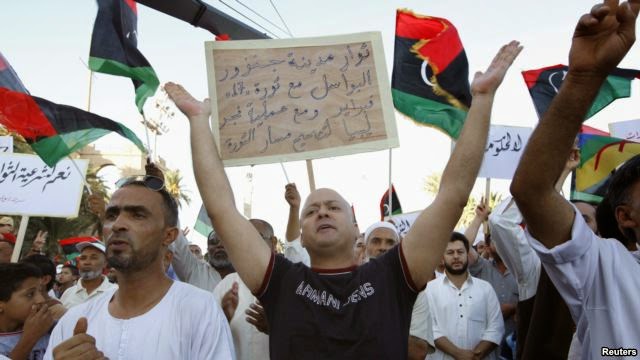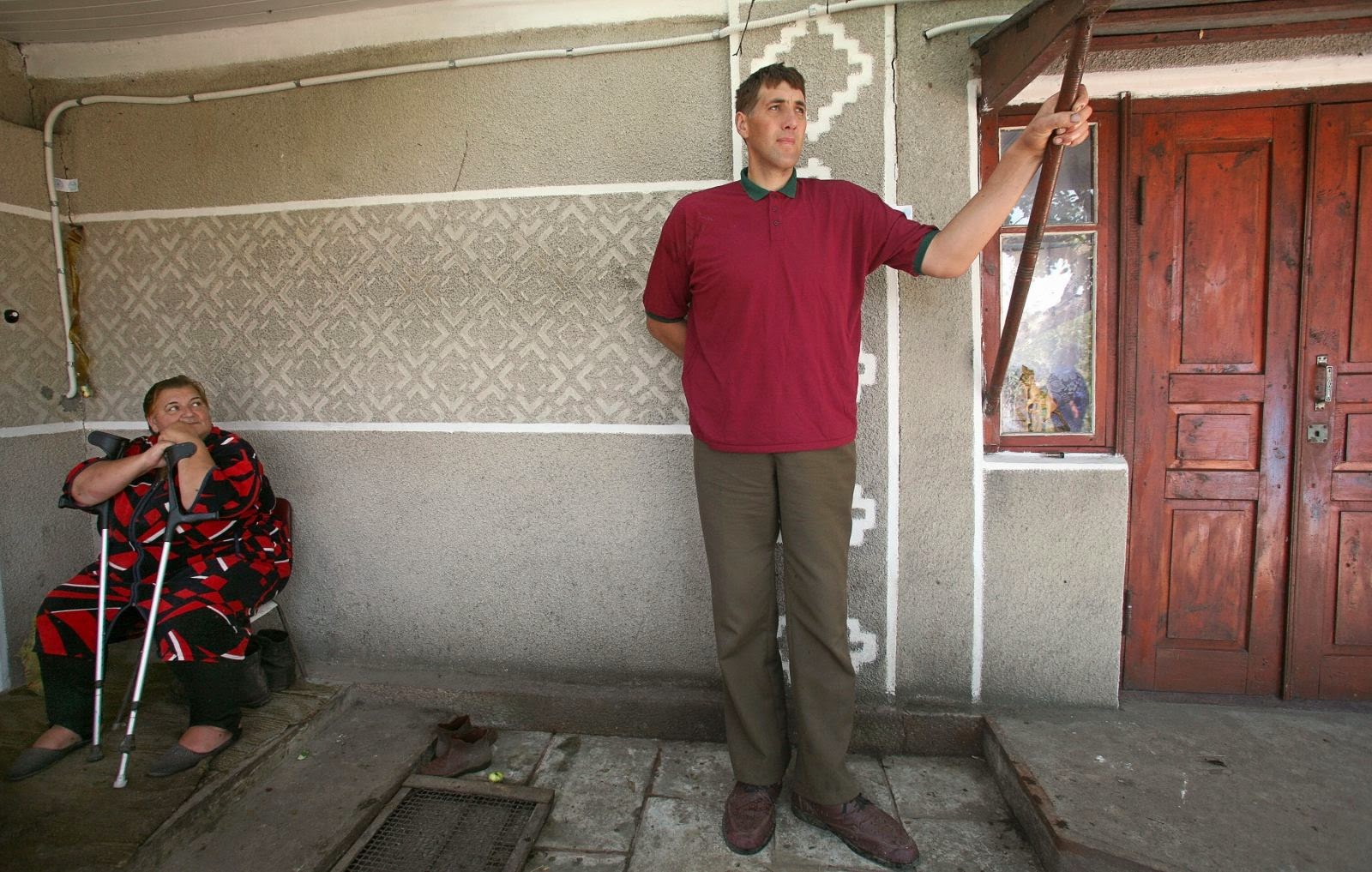Battle for Benghazi Could Break Up Libya

|
Getting your Trinity Audio player ready...
|
CAIRO—Pro-government Libyan forces, already reeling from the fall of
the capital, are fighting to prevent Islamist militants from seizing
the eastern city of Benghazi and splitting the North African country
into three warring parts.
Three weeks after losing Tripoli to a different militia, the army now
faces an offensive in Libya’s second-largest city from the Islamists
of Ansar al-Sharia, which has overrun special forces bases and is
attacking Benghazi airport.
Losing the port city would not only leave the government looking
impotent and irrelevant. It would also increase the risk of the
country crumbling into de facto autonomous regions: the militants
demand Islamist rule while other armed groups want greater powers for
the eastern region they call by its ancient name of Cyrenaica.
Rebel factions that united in 2011 in an uprising to smash the 42-year
rule of autocrat Moammar Gadhafi have turned their guns on one
another, plunging Libya into chaos as they fight for power, oil, and
cash from the $47 billion state budget.
Instead of the stable democracy Western powers had hoped to help
create by backing the rebel uprising, Libya might be heading towards
civil war, inviting comparisons with strife-torn countries such as
Somalia, Yemen or South Sudan.
The fall of Benghazi would allow the Islamists to attack
pro-government bases to the east, potentially threatening Bayda — the
seat of the constitutional assembly — and Tobruk, where the government
and elected parliament are holed up after losing Tripoli to a militia
from Misrata called Operation Dawn.
Radical Islamists already control the coastal town of Derna, located
halfway between Benghazi and Tobruk.
The central government is now only running a rump state of less than a
third of the country, said Mattia Toaldo, policy fellow at the
European Council on Foreign Relations.
“Between Dawn and Ansar al-Sharia, they control a large portion that
extends from Benghazi to the border with Tunisia,” he said.
Divided country
The conflict risks drawing in regional powers such as Egypt and the
United Arab Emirates, which are worried about Libya turning into a
safe haven for radical Islamists. The two countries bombed Misrata
positions in Tripoli last month, U.S. officials have said, though it
did not stop the fall of the capital.
Libya’s competing parts already treat each other like different
entities — the new rulers in Tripoli have set up a rival parliament
and government, while seizing at least four ministries and state
television.
There are almost no flights any more connecting western airports under
Misrata control and eastern ones held by the government.
For their survival, the uprooted parliament and the army forces in
Benghazi have allied themselves with retired general Khalifa Haftar,
whom the government had previously accused of trying to stage a coup.
With the army and police existing mainly on paper, parliament needs
Haftar, who commands air bases in the east, to confront Ansar
al-Sharia and the Misrata-led armed factions.
But his firepower has not stopped an Islamist advance in Benghazi.
Analysts say even more worrying for the government are signs of
tentative ties between its two main enemies, as Ansar al-Sharia has
offered to cooperate with Operation Dawn. The Misrata-led force has
not responded to the offer, but some of its supporters are backing the
Islamists on social media.
Members of Ansar al-Sharia, blamed by Washington for an assault on the
U.S. consulate in Benghazi during which the U.S. ambassador was killed
in September 2012, have appeared in Tripoli since the Misrata victory,
pictures on Facebook show.
Mediation bid
Both the Misrata forces and some Islamist fighters in Benghazi frame
themselves as revolutionary forces fighting what they call elements of
the Gadhafi regime.
They point out that Haftar was a top Gadhafi general before falling
out with the former strongman. And some fighters from a militia allied
to him from the western region of Zintan used to be part of Gadhafi’s
security forces.
“We need to get rid of the Gadhafi forces still in control,” said a
commentator justifying the Tripoli assault, on a television station
controlled by Misrata.
For their part, Haftar and the Zintanis see their battle as an attempt
to prevent Libya falling into the hands of Islamists. The United
Nations is trying to bring the new Tripoli rulers and elected
lawmakers to the negotiating table.
But Dirk Vandewalle, author of “A Modern History of Libya,” says any
coalition between the Misrata and Islamist forces would probably be
tactical, aimed at getting rid of the government, as they did when
united during the Gadhafi uprising.
“Virtually all cooperation we are now witnessing between certain
groups of militias is essentially tactical and temporary,” he said.
That would increase the likelihood of Libya breaking up into fiefdoms
run by competing factions — a Misrata-led one in the west, an
Islamist-dominated east and a powerless rump government in the
far-east.
Encouraged by the Tripoli takeover, other armed groups might emerge or
split from the main armed groups, which would make it difficult to
identify national leaders for any foreign-led mediation.
“I am not optimistic about any mediation efforts,” said a Western
ambassador to Libya.
Reuters





